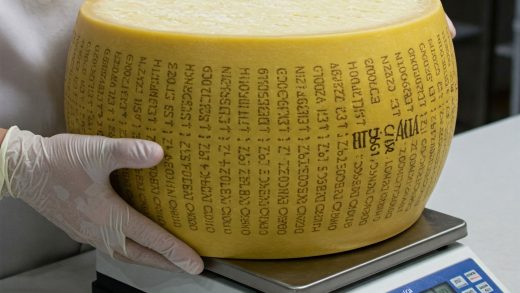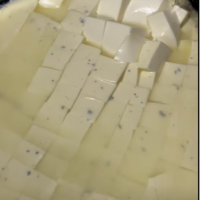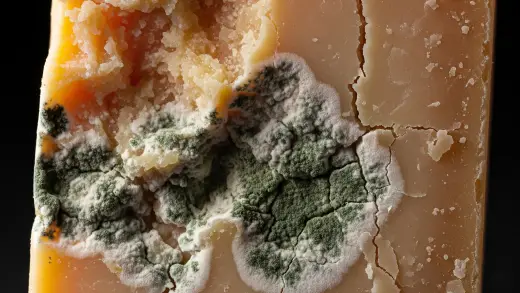Yes, too much cheese can cause diarrhea, especially if you are lactose intolerant or sensitive to dairy. The lactose in cheese, and sometimes its high-fat content, can overwhelm your digestive system, leading to diarrhea, gas, and bloating.
Have you ever enjoyed some yummy cheese, only to have a tummy ache later? Lots of people have this problem. Cheese is tasty, but it can sometimes upset your stomach and give you diarrhea. This often happens because of something called lactose intolerance.
That means your body has a hard time digesting lactose, which is a type of sugar in milk and cheese. Imagine your body needs a special helper, called lactase, to break down lactose. If you’re lactose intolerant, your body doesn’t have enough of that helper, or it’s not working well.
So, can too much cheese really give you diarrhea? The answer is a definite yes, especially if you have lactose intolerance or even just a sensitivity to dairy.
When you eat a lot of cheese, the lactose can overwhelm your digestive system. Since your body can’t break it down properly, it travels down to your gut, where it can cause all sorts of problems.

What is Lactose Intolerance?
Imagine your body as a car that needs a special key to unlock the energy from certain foods. Lactose intolerance is like not having the right key for lactose, which is a type of sugar found in milk and cheese.
This “key” is called lactase, and it’s an enzyme, a tiny helper in your gut, that breaks down lactose into smaller, easier-to-digest pieces.
If you’re lactose intolerant, your body doesn’t make enough lactase. So, when you eat or drink something with lactose, it doesn’t get broken down properly. Instead of being absorbed into your body for energy, it hangs out in your gut and can cause some tummy trouble.
What kind of trouble? Well, think of it like this: the undigested lactose attracts water into your intestines. This extra water can lead to diarrhea, making you need to run to the bathroom frequently. It can also cause gas, making your tummy feel bubbly and uncomfortable.
And, bloating, which is that tight, full feeling in your stomach, is another common symptom. So, if you often get these symptoms after eating or drinking dairy, you might be lactose intolerant. It’s always a good idea to chat with a doctor to be sure.
How Cheese Can Cause Diarrhea?
Cheese: so delicious, yet sometimes, so…troublesome. Ever wondered why your favorite cheesy snack might sometimes lead to a mad dash to the bathroom? Well, there are a few reasons why cheese can cause diarrhea, and they all have to do with how your body digests it.
Lactose Intolerance: The Main Culprit
Think of lactose as a sugar boss hiding out in dairy products. If you’re lactose intolerant, your body doesn’t have enough of the “key” (an enzyme called lactase) to unlock and break down this sugar boss.
Undigested lactose then attracts water into your intestines, creating a watery environment that leads to diarrhea. It’s like trying to mop up a spill with a paper towel that’s already soaked – it just doesn’t work!

Fat Content: Another Factor
Cheese is also packed with fat, and too much fat can sometimes be difficult for your digestive system to handle. Imagine your stomach as a little chef who’s trying to cook a complicated meal.
If you give them too much fatty food all at once, they might get overwhelmed and not be able to do their job properly. This can also lead to diarrhea.
Protein Sensitivities: The Sneaky Suspect
Even if you’re not lactose intolerant, you might still be sensitive to the proteins found in dairy. These sensitivities can also cause digestive problems, including diarrhea, in some people.
It’s like having a food allergy – your body reacts negatively to certain substances, even if they’re generally harmless.
So, while lactose intolerance is the most common reason cheese might cause diarrhea, the fat content and protein sensitivities are other things to consider.
If you find yourself frequently experiencing digestive issues after eating cheese, it might be worth talking to a doctor or a registered dietitian to figure out what’s going on. They can help you understand your body better and find ways to enjoy cheese without the unpleasant side effects.
What are the Types of Cheese and Lactose Content?
Let’s talk cheese and lactose! Not all cheeses are created equal when it comes to lactose, that tricky sugar that can cause digestive trouble. Generally, hard, aged cheeses tend to be lower in lactose than softer, younger cheeses.
Think of it this way: the longer a cheese ages, the more time the bacteria have to break down the lactose.
Here’s a breakdown:
Lower Lactose Heroes
Hard, aged cheeses are your best bet if you’re watching your lactose intake. These include:
- Cheddar: A classic choice!
- Parmesan: Perfect for sprinkling on pasta.
- Swiss: Those signature holes mean less lactose.
- Gouda: A Dutch delight.
- Brie (sometimes): While generally a soft cheese, some aged Bries have lower lactose.
Medium Lactose Contenders
These cheeses have a bit more lactose, so you might need to be a little more careful:
- Mozzarella: Great on pizza, but can be a problem for some.
- Feta: Tangy and salty, but not the lowest in lactose.
- Ricotta: Higher lactose and often causes issues.
- Higher Lactose Villains: These cheeses are generally higher in lactose and might be best avoided if you’re sensitive:
- Cream cheese: Very high in lactose.
- Cottage cheese: Another one to watch out for.
- Soft cheeses in general: They tend to have higher lactose.
Keep in mind that these are general guidelines, and the actual lactose content can vary depending on the specific cheese and how it’s made. If you’re really concerned, check the nutrition label for the lactose content per serving. Many manufacturers list this information.

Tips to Enjoy Cheese without Diarrhea:
Love cheese but hate the consequences? Don’t worry, you don’t have to give it up entirely! Here are some tips to help you enjoy cheese without the dreaded diarrhea:
Choose Wisely
As we talked about earlier, hard, aged cheeses like cheddar, parmesan, and Swiss are generally lower in lactose. These are your best friends! Try experimenting with different varieties to find your favorites.
Go Easy
Moderation is key. Even low-lactose cheeses can cause problems if you eat too much. Start with small portions and see how your body reacts. It’s all about finding your “cheese sweet spot” – enough to satisfy your cravings without causing a digestive disaster.
Lactase Supplements: Your Secret Weapon
These supplements contain the lactase enzyme that your body might be missing. Taking them before you eat cheese can help your body break down the lactose and prevent symptoms. It’s like giving your body a temporary “lactose key”!
Listen to Your Gut
Pay attention to how your body feels after eating cheese. If you start to experience any discomfort, it’s a sign to slow down or choose a lower-lactose option next time. Your gut knows best!
Pair it Up
Eating cheese with other foods, especially those containing fiber, can sometimes help slow down digestion and reduce the risk of diarrhea. Think of pairing your cheese with some whole-grain crackers, fruits, or vegetables.
Explore Alternatives
There are also many delicious dairy-free cheese alternatives available these days. They’re made from plant-based ingredients and are naturally lactose-free. Give them a try – you might be surprised at how good they taste!
By following these tips, you can enjoy your favorite cheesy treats without the unpleasant side effects. It’s all about being smart about your choices and listening to your body.
When to See a Doctor?
While occasional diarrhea from eating too much cheese is usually nothing to worry about, it’s important to know when it might be a sign of something more serious.
If your diarrhea is persistent, meaning it lasts for more than a few days, or if it’s severe, like if you’re experiencing dehydration, bloody stools, or severe abdominal pain, it’s definitely time to see a doctor.
These could be signs of a more serious digestive issue or infection, and it’s important to get them checked out.
Think of it this way: a little tummy trouble from cheese is like a minor car problem, but persistent or severe diarrhea is like the engine light coming on – it’s a signal to get it checked by a professional!
So, if you’re at all concerned, don’t hesitate to talk to your doctor. They can help you figure out what’s going on and get you back on track to feeling better.
FAQs
Why do I have diarrhea after eating a lot of cheese?
You likely have diarrhea after eating a lot of cheese because of lactose intolerance, a common condition where your body struggles to digest lactose, the sugar in dairy. The undigested lactose draws water into your gut, causing diarrhea, gas, and bloating. Fat content in cheese can also contribute.
What are the symptoms of eating too much cheese?
Eating too much cheese can cause digestive upset, especially if you’re lactose intolerant. Symptoms may include diarrhea, gas, bloating, sto
How long does diarrhea last after eating cheese?
Diarrhea after eating cheese can last from a few hours up to 2 days, depending on your lactose intolerance or sensitivity level, the amount of cheese you ate, and other individual factors. If your symptoms persist beyond 2 days, consult a doctor.
Conclusion
So, there you have it! Cheese, while a delicious treat, can definitely cause diarrhea, especially if you have lactose intolerance or a sensitivity to dairy. It all boils down to how your body handles lactose, the sugar in cheese, and sometimes the fat content or dairy proteins can also play a role.
The good news is that you don’t necessarily have to give up cheese entirely. By choosing lower-lactose options, eating in moderation, and maybe even using lactase supplements, you can often enjoy cheese without the unpleasant side effects.
Just remember to listen to your body and be mindful of your own tolerance. Enjoy your cheese responsibly, and happy snacking!















